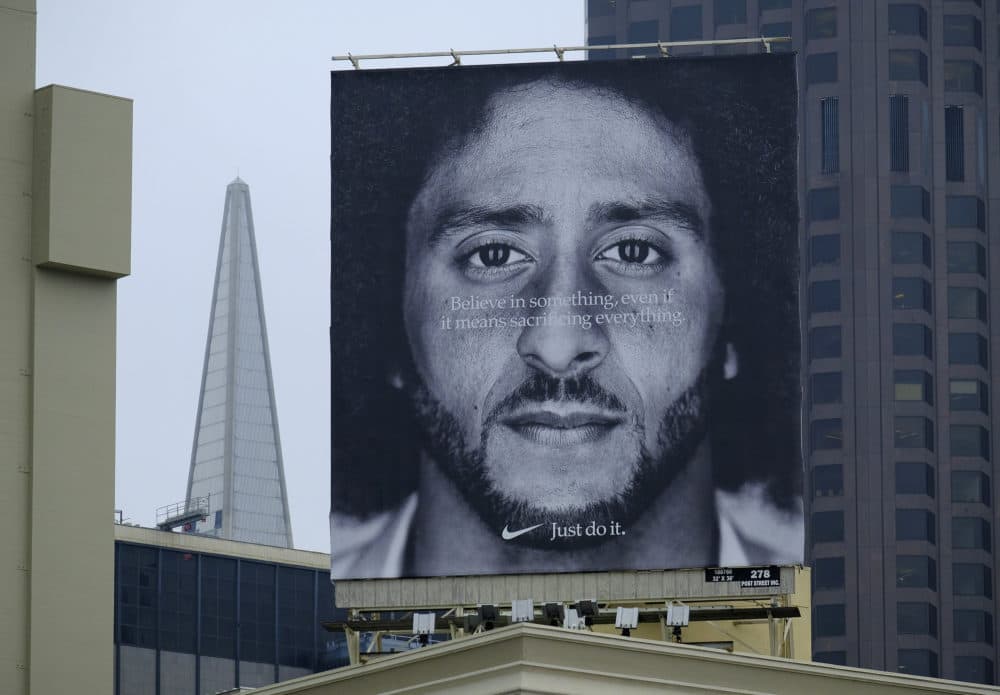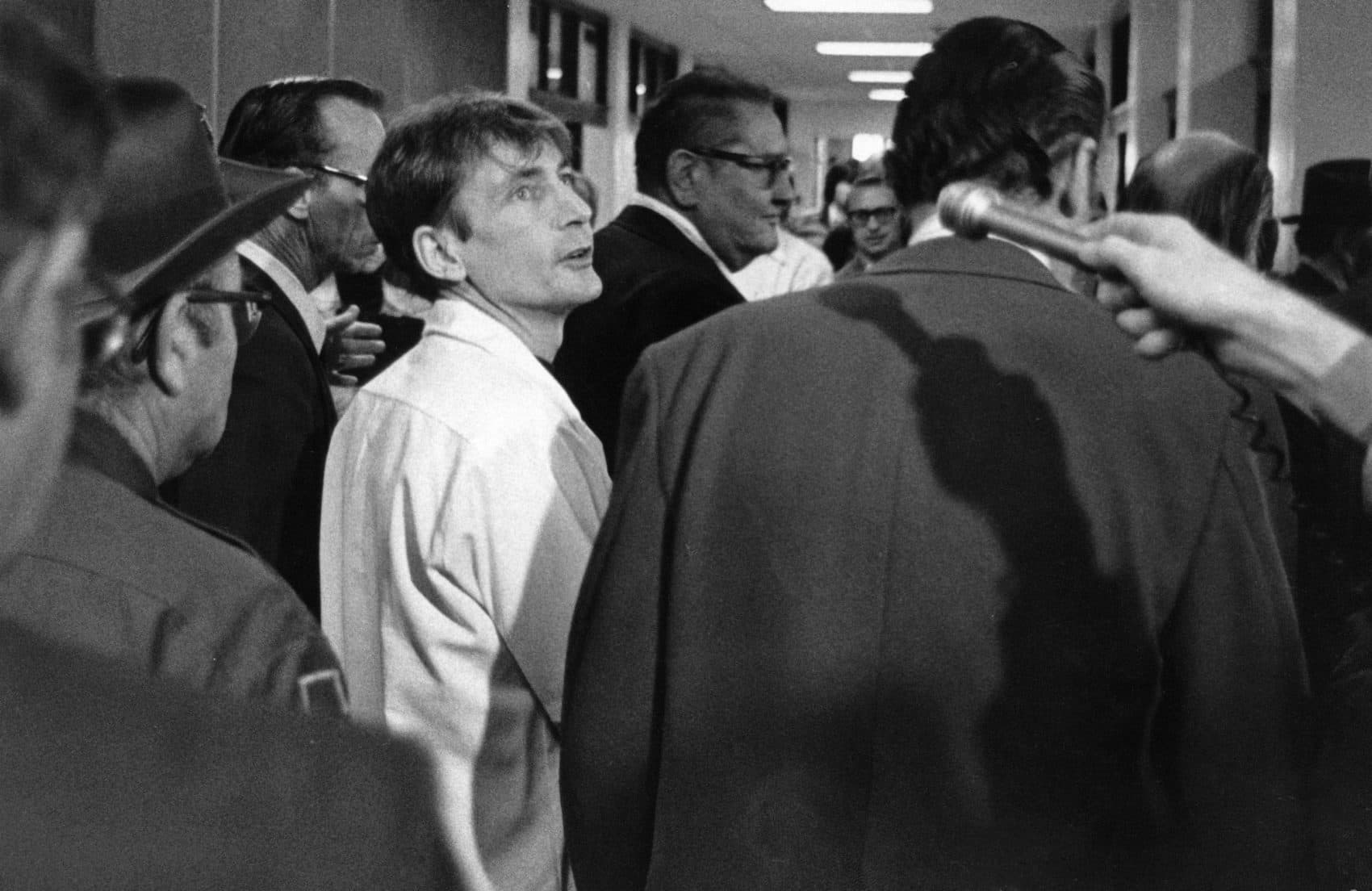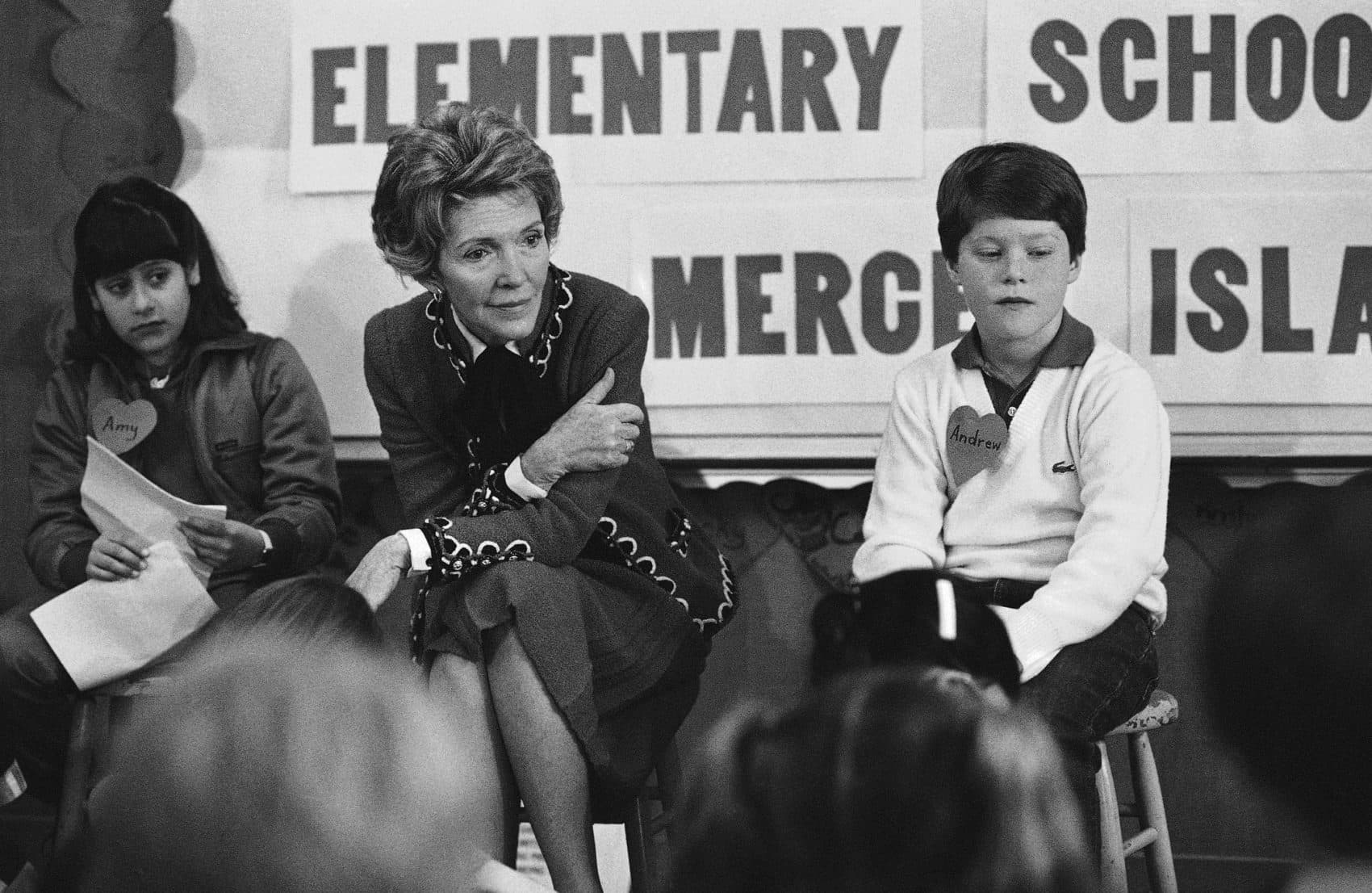Advertisement
The Story Behind Nike's 'Just Do It' Slogan
Resume
This story is part of Only A Game's Thanksgiving Leftovers Show. Find the full episode here.
In September, former 49ers quarterback Colin Kaepernick became the new face of Nike's "Just Do It" advertising campaign.
It was a big story. But did most of the people who were talking about the Kaepernick commercial know the history of Nike's "Just Do It" tagline?
"Probably not," says New School history professor Natalia Mehlman Petrzela, who is writing a book about American fitness culture. "They've probably been inspired by it. They've probably made fun of it at some point. But I wouldn't say the origin story is necessarily very familiar."
"What is most people's reaction when you tell them the origin story?" I ask Petrzela.
"They’re really surprised," she says.
Gary Gilmore's Execution
The best place to start is the Utah State Prison on the morning of Jan. 17, 1977.
"What was happening that morning was actually a very landmark event," says Timothy Bella, Morning Mix deputy editor for the Washington Post. "A man named Gary Gilmore was actually set to be the first person to be executed in the United States in a 10-year period."
The 36-year-old Gilmore had killed two men in Utah.
"And he is set to be executed by firing squad, so a very brutal execution," Bella says. "And that day he’s in a plain T-shirt with a bag over his head."
Gilmore was asked if he had anything to say.
"And his last words were, 'Let’s do it,' " Bella says.

Nike Vs. Reebok
Ten years after Gary Gilmore was executed, Nike was in a tough spot.
"Nike already was a big global company, there's no question about it," Petrzela says. "It had gone public in the early 1980s. It already had signed Michael Jordan. But in 1987 they were having kind of a tough time. They had really missed the boat on aerobics."
Meanwhile, Reebok hadn't missed the boat.
"It's interesting to look at [Nike's] annual report, and I'll just read a little bit of the statement to shareholders, where they say: 'In the vernacular of the Wall Street brokerage community, Fiscal 1987 was a mixed year for Nike. It was a year in which sales dropped 18 percent, earnings declined 40 percent to $0.93 a share, and we struggled with market share,' " Petrzela says.
"Nike needed something to kind of change their way fast," Bella says.
For Nike’s next campaign, advertising executive Dan Wieden thought the company needed a tagline. And his firm, Wieden+Kennedy, happened to be based in Oregon, where murderer Gary Gilmore had also lived.
"He remembered his 'Let’s do it' as this ultimate act of intention," Bella says. "And he just thought it was such a statement."
"But then the rest of 'Just Do It' comes from a very different source, which was Nancy Reagan’s 'Just Say No' campaign,” Petrzela says. "Wieden mashed those two up and put them together and came up with 'Just Do It.' "

The Impact
"On the financial side, it had a huge impact," Bella says. "And socially it kind of opened people's eyes to what Nike could actually do as a brand."
"Would Nike be the Nike that we know it today if it wasn't for 'Just Do It'?" I ask.
"I'd say probably not," he says.
Petrzela isn’t so sure. She says: if there had never been "Just Do It," who knows what else Nike would’ve come up with?
And as surprising as the origin of "Just Do It" may be, she says it actually captures the individualism — the “I’m in control” spirit — of the 1980s.
"Even Gary Gilmore — when are you ever less in control of your life than when you're going before the firing squad? But it is an example of kind of taking agency over your own fate to say, 'Let's do it,' ” Petrzela says. "And then, of course, Nancy Reagan — the whole ethos of 'Just Say No' is, you know, 'At the end of the day, whether you live in a neighborhood that's being ravaged by crack or whether there are drugs coming into this country, it's up to you to just say no.' "
So, Petrzela says, the Nancy Reagan/convicted murderer mashup might seem strange, but the slogan’s success actually makes sense.
For much more, check out Timothy Bella's Washington Post story " ‘Just Do It’: The Surprising And Morbid Origin Story Of Nike’s Slogan" and Natalia Mehlman Petrzela's Washington Post story "The New Colin Kaepernick Campaign Captures The Tension Between Nike's Values And Its Reality."
This segment aired on November 24, 2018.
